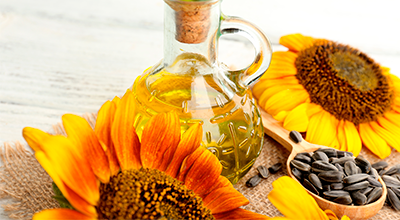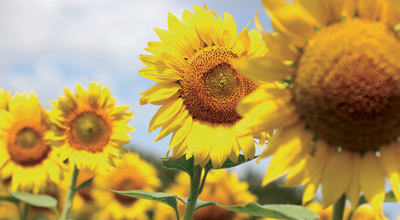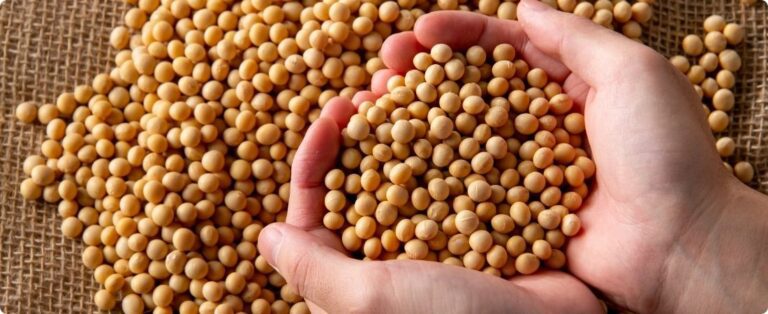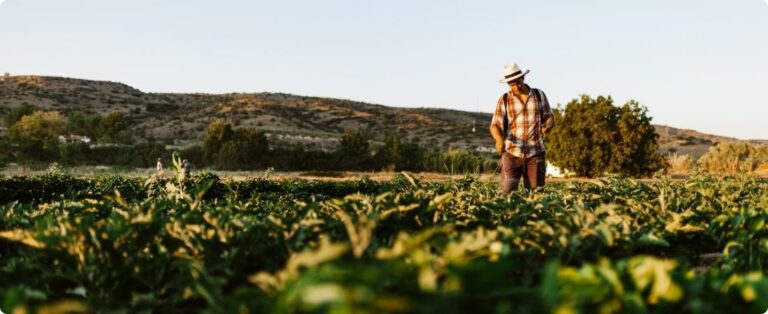
Sunflower oil (Helianthus annus L.) originates from North America, dating back to 1000 BC. Its official expansion was thanks to exports to Europe, where it was possible to reach more countries where it has remained to this day as a noble product used especially in the kitchen.
Today, the application of sunflower oil extends to the food and animal nutrition segments; hygiene & cleaning; Pharmacist and Chemist. Depending on the country, it can still be used to produce biodiesel.
Sunflower planting has been gaining ground over the years, as it is a product that adapts very well to soil conditions, being one of the main options for crop rotation on land. Sunflower roots are very deep, facilitating greater absorption of nutrients from the earth, thus helping with the next crop, as their decomposition serves as nutrients for the different layers of the earth.
As a result, it has become a very interesting product for cultivation and is gaining ground worldwide. In addition to everything mentioned, it does not require high maintenance costs and generates a product with high added value, yielding an average of 1,300 kg of seed per hectare, which may vary depending on the climate at the time of planting.
The extraction process is standardized when we talk about an oilseed. It is obtained through pressing the grains, which can be mechanical pressing, which is a more artisanal process, normally on a smaller production scale; or by solvent, a more industrial process, that is, on a larger scale with the use of chemicals in the process. It then goes through filtration and decantation to separate the waste. Depending on the seed, it can contain up to 58% of oil content. Among its main by-products are seeds, bran, sunflower stalks (plant), sunflower husks, crude oil and refined oil.

Sunflower oil has many health benefits, and is an excellent option when compared to other oilseeds. It is rich in Vitamin E and omega 3, which makes it an anti-aging agent, that is, it is considered a natural antioxidant. Not only does it help in the formation of cells that combat degenerative problems, but it is also a direct agent for maintaining the skin's natural hydration. It helps reduce cholesterol, combating free radicals and helping to prevent vascular diseases, providing greater health to the nervous system as a whole.
When we talk about world oil production, the main producers are in the Black Sea, respectively, Ukraine and Russia, accounting for an average of 25 million tons, almost half of world production. Latin America also enters the equation, with our partners from Argentina among the TOP 3 as the main source of product supply to Brazil. Brazil plays an important role as an importer, always being among the TOP 10 largest importers.
Brazil produces an average of 100 thousand tons of sunflower seeds annually. This volume has been growing every year in planted area. In Brazil, it is mainly used to change crops to help nourish the soil for the next plantation. Today the largest producing state is Mato Grosso, followed by Minas, Goiás and Rio Grande do Sul. Here in Brazil the product is mainly destined for the food industry.
Talking about the current market, this year due to the increase in corn prices, many producers opted to change their planting. As a result, a drop of almost 60% is expected in the State of Mato Grosso (around 14,000 tons), thus placing Goiás in the lead in sunflower production (with 38,000 tons) in the 2020/2021 harvest. Something we haven't seen happening in years.
{module Form RD}
The harvest was supposed to take place now, but we had delays in the harvest due to late planting, caused by the previous crop, soybeans. Considering this, Brazil will need to make greater imports, as the local market will not meet our needs. The trend in the local market for the second half of the year is for prices to rise due to the lack of product, even though it is the start of the harvest season.
In conclusion, it is notable that this product is gaining notoriety in the world and in Brazil, it is the healthiest product for human consumption, and is an excellent option for cooking. Despite having lost space in Brazil due to price issues, it continues to attract the attention of producers due to its high yield, low cost and great added value. The future is for those who are aware that health is something that we must preserve, and this product will play a fundamental role in our daily diet. What role will your company play in this future that is already knocking on the door? It is time to position ourselves with healthier and more premium products, the market is working on this. And you, how do you want to show your brand to the market?
Per Laura Pereira, sunflower specialist at Aboissa















